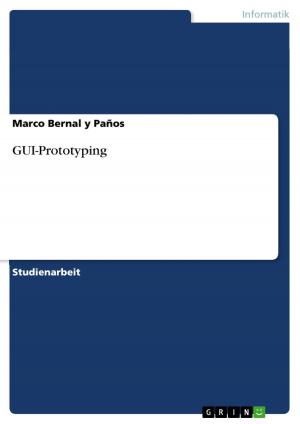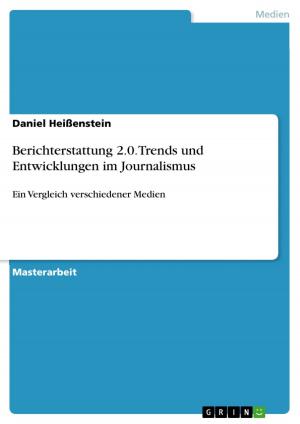Innate potentialities require experience to become knowledge
How the notion of innatism can work?
Nonfiction, Religion & Spirituality, Philosophy| Author: | Alexander Borodin | ISBN: | 9783656262725 |
| Publisher: | GRIN Verlag | Publication: | August 24, 2012 |
| Imprint: | GRIN Verlag | Language: | English |
| Author: | Alexander Borodin |
| ISBN: | 9783656262725 |
| Publisher: | GRIN Verlag |
| Publication: | August 24, 2012 |
| Imprint: | GRIN Verlag |
| Language: | English |
Research Paper (undergraduate) from the year 2012 in the subject Philosophy - Theoretical (Realisation, Science, Logic, Language), grade: 69, University of Essex (Department of Philosophy), language: English, abstract: Does our notion of knowledge necessitate that it becomes manifest firstly in our thinking and then in our actions or can it on the contrary exist in a latent, hidden way within us and still be considered knowledge? Given the exceeding ambiguity behind the term knowledge we will need in the first place a clear definition of knowledge that should in turn enable us to bring focus to our investigation on the whole. In the course of this work, we will take a look at the main arguments Plato and Leibniz put forward in this regard, particularly focusing on their varying concept of innate knowledge and its relation to experience and our capacity to reason. In what will follow, I shall argue that even if we are able to identify certain instances of pre- existing knowledge or understanding, it will anyway remain inextricably connected to the experiences we make in our environment. Thereby, there must be a coincidence of innate capacities and certain, outer circumstances for knowledge to emerge and become visible. Otherwise, the presence of knowledge isn't at any rate recognizable in the real world, but exists in an inactivated, hidden mode without the respective person even becoming conscious of its existence.
Research Paper (undergraduate) from the year 2012 in the subject Philosophy - Theoretical (Realisation, Science, Logic, Language), grade: 69, University of Essex (Department of Philosophy), language: English, abstract: Does our notion of knowledge necessitate that it becomes manifest firstly in our thinking and then in our actions or can it on the contrary exist in a latent, hidden way within us and still be considered knowledge? Given the exceeding ambiguity behind the term knowledge we will need in the first place a clear definition of knowledge that should in turn enable us to bring focus to our investigation on the whole. In the course of this work, we will take a look at the main arguments Plato and Leibniz put forward in this regard, particularly focusing on their varying concept of innate knowledge and its relation to experience and our capacity to reason. In what will follow, I shall argue that even if we are able to identify certain instances of pre- existing knowledge or understanding, it will anyway remain inextricably connected to the experiences we make in our environment. Thereby, there must be a coincidence of innate capacities and certain, outer circumstances for knowledge to emerge and become visible. Otherwise, the presence of knowledge isn't at any rate recognizable in the real world, but exists in an inactivated, hidden mode without the respective person even becoming conscious of its existence.















